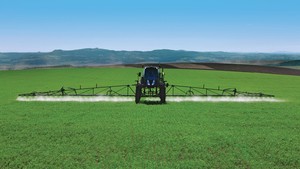On 3 August, a Federal judge in Brasilia, ruled the immediate prohibition of new licenses for products based on three chemicals: Abamectin, Glyphosate and Tiram. The judge also gave a period of up to 30 days for the withdrawal of those already released in the market. The decision still gave another term to the Agência Nacional de vigilância sanitaria (the national sanitary surveillance agency – ANVISA, by its acronym in Portuguese) who has until the end of 2018 to complete the toxicological reassessment of the three chemicals. The decision is valid for the whole country.
This is a preliminary injunction in public civil action filed by Brazil’s Federal Prosecution against ANVISA and the Federal Union of Brazil. It is based on several studies that “sufficiently demonstrate the toxicity of the products to human health”, as well as ANVISA’s excessive delay in completing the administrative procedure of toxicity reappraisal. This delay was characterised as a notorious abuse of the rights to health and sustainable development. The judge applied the Precautionary Principle (Rio’s Declaration) which reverses the burden of proof on the companies and ANVISA, and requires them to prove that the chemical substances released into the environment are not potentially harmful. In this case, the judge did not find strong evidence that the active principles don’t cause damages to health and the environment. Therefore, the constitution determined that “the economic order and the free market mute to obey the principles of consumer protection (their health) and the environment”.
It is possible to appeal this decision within 15 days – the Federal Court could revoke the measure and allow the use, commercialisation and release of new licenses again. Until then, Monsanto/Bayer (Germany), Nortox S/A (Brazil) and Taminco (Belgium) could run into significant contractual and economic losses. These companies own both the licenses and property rights of the chemicals used to make pesticides, as well as the property rights of the genetically-modified seeds developed to be resistant to these chemicals. That is why other corporations who are also at stake are participating in the action in assistance to the defendants. Among these corporations are: FMC Química do Brasil Ltd.; National Union of the Industry of Products for Plant Protection; Syngenta (still an autonomous company despite its acquisition by ChemChina); the Brazilian Association of Soybean Producers; Monsanto do Brasil Ltda; Nortox S/A; Cheminova Brazil Ltda; and Taminco Brazil Ltda.
Glyphosate, active principle of Roundup, belongs to Monsanto, which was bought by Bayer. It is the pesticide most commonly used in Brazil and is generally associated with transgenic soybean, maize and cotton developed to be resistant to glyphosate. To authorise these glyphosate-resistant GMO releases, ANVISA and Brazil’s Ministry of Agriculture allowed the increasing the maximum residue level in soybean to 10 mg/kg, which is 200 times higher than the maximum levels allowed in the EU. In the case of water, Brazil has five thousand times more residue of glyphosate than the EU, with 0,1 ug/l in the EU compared to 500 ug/l in Brazil. The WHO’s International Agency for Research on Cancer (IARC) classified the product as a “probable human carcinogen” (from 1 to 5, glyphosate is level 4 of risk). Moreover, the studies and statistics presented as part of the action reveal the death of people exposed to glyphosate.
Abamectin, is an insecticide produced by Nortox S/A, which is forbidden in the EU mainly because of its high toxicity as well as the evidence gathered by animal researchers indicating reproductive toxicity and genetic mutations through the contamination of water resources. The contamination of water is what attracts most of the attention, with Brazilian law allowing a limit which is five thousand times higher than the maximum that is allowed in drinking water in Europe. [1]
Tiram (tetramethylthiuram disulfide), was registered by a Belgian chemical group, Taminco in Brazil, but Bayer (Derosal Plus) also uses this active principle in its products, as well as other companies like Chemtura , Cropchem Ltda. Studies indicate many adverse effects in human population and other animals, such as neurobehavioral effects, ataxia, seizures, lethargy and severe fetal malformations.
Meanwhile, another bill is being in processed in Brazil’s National Congress to make the registration of pesticides more flexible, in stark contrast with the global need to protect health and environmental rights.
What remains clear is that, even if temporarily, the people won a battle!
For more information about pesticides in Brazil see this report: “Agrotóxicos: Brasil libera quantidade até 5 mil vezes maior do que Europa,” Reporter Brasil, 2017: http://reporterbrasil.org.br/2017/11/agrotoxicos-alimentos-brasil-estudo/
Follow the Permanent Campaign against Pesticides and for Life: http://contraosagrotoxicos.org/
You can read the whole sentence in Portuguese here.
[1] "Geography of the Use of Agrochemicals in Brazil and Connections with the European Union", by researcher Larissa Mies Bombardi, from the Agrarian Geography Laboratory of the University of São Paulo. FFLCH, 2017. https://www.larissabombardi.blog.br/atlas2017
